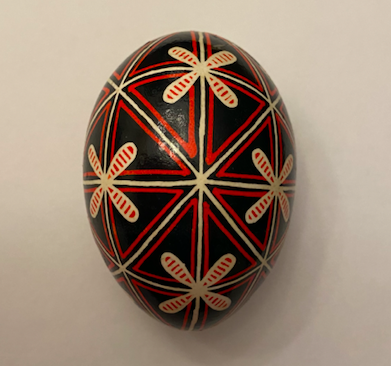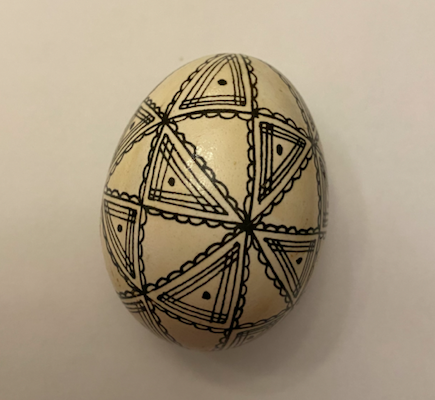Main Piece: Ukranian Lover’s Song
Original:
Ти казала в понедiлок – пiдем разом по барвiнок. / Я прийшов, тебе нема, пiдманула, пiдвела.
Ти ж мене пiдманула, ти ж мене пiдвела. / Ти ж мене, молодого, з ума розуму звела.
Я ж тебе, Я ж тебе, пiдманула, я ж тебе, я ж тебе, пiдвела. / Я ж тебе, молодого, з ума розуму звела.
Ти казала у вiвторок – поцiлую разiв сорок. / Я прийшов, тебе нема, пiдманула, пiдвела.
Ти ж мене пiдманула, Ти ж мене пiдвела. / Ти ж мене, молодого, з ума розуму звела.
Я ж тебе, Я ж тебе, пiдманула, я ж тебе, я ж тебе, пiдвела. / Я ж тебе, молодого, з ума розуму звела.
Ти казала у середу – пiдем разом по череду. / Я прийшов, тебе нема, пiдманула, пiдвела.
Ти ж мене пiдманула, ти ж мене пiдвела. / Ти ж мене, молодого, з ума розуму звела.
Я ж тебе, Я ж тебе, пiдманула, я ж тебе, я ж тебе, пiдвела. / Я ж тебе, молодого, з ума розуму звела.
Ти казала у четвер – пiдем разом на концерт. / Я прийшов, тебе нема, пiдманула, пiдвела.
Ти ж мене пiдманула, ти ж мене пiдвела. / Ти ж мене, молодого, з ума розуму звела.
Я ж тебе, Я ж тебе, пiдманула, я ж тебе, я ж тебе, пiдвела. / Я ж тебе, молодого, з ума розуму звела.
Ти казала у п’ятницю – пiдем разом по пшеницю. / Я прийшов, тебе нема, пiдманула, пiдвела.
Ти ж мене пiдманула, ти ж мене пiдвела. / Ти ж мене, молодого, з ума розуму звела.
Я ж тебе, Я ж тебе, пiдманула, я ж тебе, я ж тебе, пiдвела. / Я ж тебе, молодого, з ума розуму звела.
Ти казала у суботу – пiдем разом на роботу. / Я прийшов, тебе нема, пiдманула, пiдвела.
Ти ж мене пiдманула, ти ж мене пiдвела. / Ти ж мене, молодого, з ума розуму звела.
Я ж тебе, Я ж тебе, пiдманула, я ж тебе, я ж тебе, пiдвела. / Я ж тебе, молодого, з ума розуму звела.
Ти казала у недiлю – пiдем разом на весiлля. / Я прийшов, тебе нема, пiдманула, пiдвела.
Ти ж мене пiдманула, ти ж мене пiдвела. / Ти ж мене, молодого, з ума розуму звела.
Я ж тебе, Я ж тебе, пiдманула, я ж тебе, я ж тебе, пiдвела. / Я ж тебе, молодого, з ума розуму звела.
Phonetic:
Ty kazala v ponedilok – pidem razom po barvinok. / YA pryyshov, tebe nema, pidmanula, pidvela.
Ty zh mene pidmanula, ty zh mene pidvela. / Ty zh mene, molodoho, z uma rozumu zvela.
YA zh tebe, YA zh tebe, pidmanula, ya zh tebe, ya zh tebe, pidvela. / YA zh tebe, molodoho, z uma rozumu zvela.
Ty kazala u vivtorok – potsiluyu raziv sorok. / YA pryyshov, tebe nema, pidmanula, pidvela.
Ty zh mene pidmanula, Ty zh mene pidvela. / Ty zh mene, molodoho, z uma rozumu zvela.
YA zh tebe, YA zh tebe, pidmanula, ya zh tebe, ya zh tebe, pidvela. / YA zh tebe, molodoho, z uma rozumu zvela.
Ty kazala u seredu – pidem razom po cheredu. / YA pryyshov, tebe nema, pidmanula, pidvela.
Ty zh mene pidmanula, ty zh mene pidvela. / Ty zh mene, molodoho, z uma rozumu zvela.
YA zh tebe, YA zh tebe, pidmanula, ya zh tebe, ya zh tebe, pidvela. / YA zh tebe, molodoho, z uma rozumu zvela.
Ty kazala u chetver – pidem razom na kontsert. / YA pryyshov, tebe nema, pidmanula, pidvela.
Ty zh mene pidmanula, ty zh mene pidvela. / Ty zh mene, molodoho, z uma rozumu zvela.
YA zh tebe, YA zh tebe, pidmanula, ya zh tebe, ya zh tebe, pidvela. / YA zh tebe, molodoho, z uma rozumu zvela.
Ty kazala u p’yatnytsyu – pidem razom po pshenytsyu. / YA pryyshov, tebe nema, pidmanula, pidvela.
Ty zh mene pidmanula, ty zh mene pidvela. / Ty zh mene, molodoho, z uma rozumu zvela.
YA zh tebe, YA zh tebe, pidmanula, ya zh tebe, ya zh tebe, pidvela. / YA zh tebe, molodoho, z uma rozumu zvela.
Ty kazala u subotu – pidem razom na robotu. / YA pryyshov, tebe nema, pidmanula, pidvela.
Ty zh mene pidmanula, ty zh mene pidvela. / Ty zh mene, molodoho, z uma rozumu zvela.
YA zh tebe, YA zh tebe, pidmanula, ya zh tebe, ya zh tebe, pidvela. / YA zh tebe, molodoho, z uma rozumu zvela.
Ty kazala u nedilyu – pidem razom na vesillya. / YA pryyshov, tebe nema, pidmanula, pidvela.
Ty zh mene pidmanula, ty zh mene pidvela. / Ty zh mene, molodoho, z uma rozumu zvela.
YA zh tebe, YA zh tebe, pidmanula, ya zh tebe, ya zh tebe, pidvela. / YA zh tebe, molodoho, z uma rozumu zvela.
Translation:
You told me on Monay – we’ll go together and pick flowers. I came, you weren’t there, you lied, you stood me up.
You lied to me, you stood me up, You’re driving me crazy!
I to you, I to you, I lied, I to you, I to you, stood you up, I’m driving you crazy!
You told me on Tuesday, you’d kiss me forty times. I came, you weren’t there, you lied, you stood me up.
You lied to me, you stood me up, You’re driving me crazy!
I to you, I to you, I lied, I to you, I to you, stood you up, I’m driving you crazy!
You told me on Wednesday, we’ll go together and pick berries. I came, you weren’t there, you lied, you stood me up.
You lied to me, you stood me up, You’re driving me crazy!
I to you, I to you, I lied, I to you, I to you, stood you up, I’m driving you crazy!
You told me on Thrusday, we’ll go to the concert together. I came, you weren’t there, you lied, you stood me up.
You lied to me, you stood me up, You’re driving me crazy!
I to you, I to you, I lied, I to you, I to you, stood you up, I’m driving you crazy!
You told me on Friday, we’ll go collect wheat together. I came, you weren’t there, you lied, you stood me up.
You lied to me, you stood me up, You’re driving me crazy!
I to you, I to you, I lied, I to you, I to you, stood you up, I’m driving you crazy!
You told me on Saturday, we’ll go to work together. I came, you weren’t there, you lied, you stood me up.
You lied to me, you stood me up, You’re driving me crazy!
I to you, I to you, I lied, I to you, I to you, stood you up, I’m driving you crazy!
You told me on Sunday, we’ll go together to the party. I came, you weren’t there, you lied, you stood me up.
You lied to me, you stood me up, You’re driving me crazy!
I to you, I to you, I lied, I to you, I to you, stood you up, I’m driving you crazy!
Background Information:
- Why does informant know this piece?
She would sing it with her friends when they were young.
- Where did they learn this piece?
Soviet Union
- What does it mean to them?
It’s a funny song about a girl who is a tease.
Context:
Often sung at parties, considered a traditional Ukranian folk song.
Personal Thoughts:
This song canbe sung by only women, or by men for half of it and women for the chorus. It is about a man who is constantly stood up by a girl he likes. For every day of the week, the girl promises to go on a date with him, and it drives him crazy that she never comes to the dates she sets up, but he clearly cannot stay away.
This song can be found in a popular Russian/Ukrainian TV Show “Svaty”:
Yakovlev, Andrey, director. Svaty. Kvartal 95 Studio, 2011.


